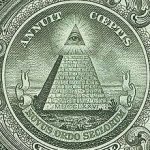The origin of demons is a topic that has been explored and interpreted in various ways within Christian theology and the broader context of religious and mythological traditions. Here’s an overview based on biblical references and traditional Christian beliefs:
Biblical References and Christian Beliefs
Fallen Angels: One of the most commonly accepted beliefs is that demons are fallen angels. This belief is derived from passages in the Bible that describe a rebellion in heaven, led by Satan, who was originally an angel named Lucifer. According to this view, Satan and his followers were cast out of heaven and became demons.
Revelation 12:7-9 (NIV):
“Then war broke out in heaven. Michael and his angels fought against the dragon, and the dragon and his angels fought back. But he was not strong enough, and they lost their place in heaven. The great dragon was hurled down—that ancient serpent called the devil, or Satan, who leads the whole world astray. He was hurled to the earth, and his angels with him.”
Nephilim and Spirits of the Dead: Another perspective comes from the interpretation of Genesis 6:1-4, which mentions the Nephilim, offspring of the “sons of God” and the “daughters of men.” Some traditions suggest that the spirits of the Nephilim became demons after the Nephilim perished.
Genesis 6:1-4 (NIV):
“When human beings began to increase in number on the earth and daughters were born to them, the sons of God saw that the daughters of humans were beautiful, and they married any of them they chose. Then the Lord said, ‘My Spirit will not contend with humans forever, for they are mortal; their days will be a hundred and twenty years.’ The Nephilim were on the earth in those days—and also afterward—when the sons of God went to the daughters of humans and had children by them. They were the heroes of old, men of renown.”
Satan’s Influence and Human Sin: Demons are also often associated with the influence of Satan and the presence of evil in the world. They are seen as agents of Satan, working to oppose God and lead humans into sin.
Ephesians 6:12 (NIV):
“For our struggle is not against flesh and blood, but against the rulers, against the authorities, against the powers of this dark world and against the spiritual forces of evil in the heavenly realms.”
Theological Interpretations
Early Church Fathers: Many early church fathers, such as Augustine and Origen, wrote about demons as fallen angels who rebelled against God. This view has been influential in shaping Christian theology on the matter.
Apocryphal and Pseudepigraphal Texts: Some texts outside the canonical Bible, like the Book of Enoch, provide detailed accounts of the fall of angels and their transformation into demons. While not considered scripture by most Christian denominations, these writings have influenced theological thought and popular beliefs about demons.
Conclusion
In summary, the prevailing Christian belief is that demons are fallen angels who rebelled against God and were cast out of heaven. They now serve Satan and work to spread evil and temptation among humanity. Other interpretations include the spirits of the Nephilim and the general presence of evil forces opposed to God.
Understanding the origin of demons can help us recognize the spiritual battles we face and the importance of relying on God’s power and protection. Let us remain vigilant in our faith, seeking God’s wisdom and strength in all things.
The belief in demons, or stories about them, has been around for a long time and can be found in mythology, folklore, religion, and literature. The origins of this belief may date back to the Paleolithic age, when humans feared the unknown, strange, and horrific.
In Christian demonology, Albertus Magnus and Thomas Aquinas believed that God created demons and angels using the same non-material substance. Because demons have no bodies, they have no sexual identity and are unable to create other angels or human beings.
In Abrahamic religions, including early Judaism and ancient-medieval Christian demonology, demons are considered harmful spiritual entities that can cause demonic possession. Exorcisms are sometimes called for in these cases.
Some examples of demons and the sins they represent include:
Lucifer: Pride
Beelzebub: Envy
Satan: Wrath
Abaddon: Sloth
Mammon: Greed
Belphegor: Gluttony
Asmodeus: Lust



